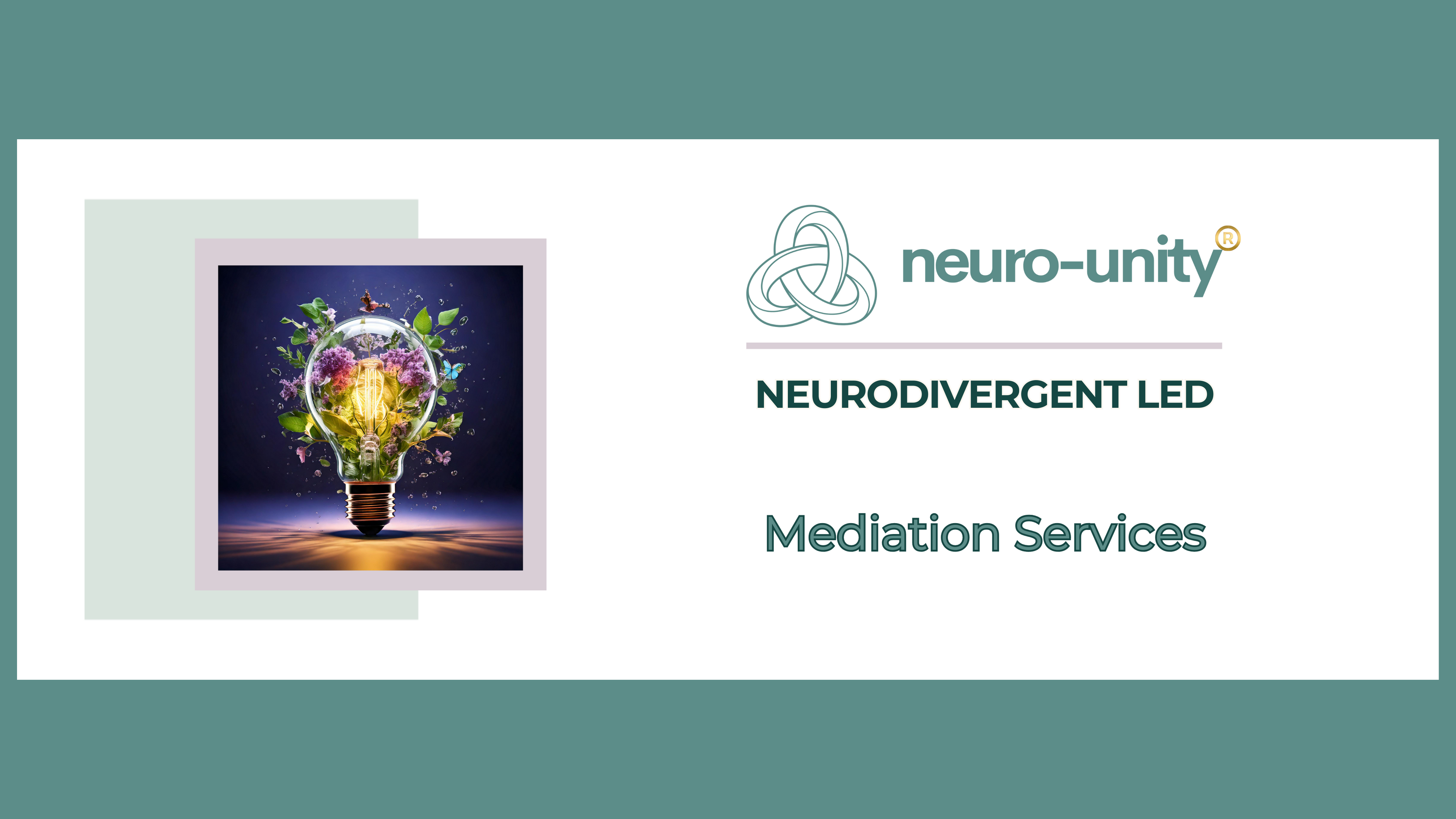
Mediation for neurodivergent employees
-
Mediation can be particularly beneficial for neurodivergent employees in the workplace. It offers a flexible, personalized approach that can accommodate diverse communication styles and sensory needs. Unlike formal grievance procedures, mediation allows for breaks, visual aids, or alternative communication methods that may better suit neurodivergent individuals.
-
The neutral, less confrontational environment of mediation can reduce anxiety and sensory overload often associated with traditional conflict resolution processes. Mediators trained in neurodiversity can help bridge communication gaps between neurodivergent employees and their neurotypical colleagues or managers, fostering better understanding and empathy.
-
This process can lead to more tailored, effective solutions that address the unique perspectives and challenges of neurodivergent employees, ultimately promoting a more inclusive and diverse workplace.

Using neurodivergent mediators
-
Neurodivergent mediators bring unique strengths to conflict resolution processes. Their diverse thinking patterns can lead to innovative problem-solving approaches and unconventional solutions. Many neurodivergent individuals possess heightened pattern recognition skills, allowing them to identify underlying issues and connections that others might miss. Their often detail-oriented nature can be invaluable in complex disputes.
-
Neurodivergent mediators may have increased empathy and understanding for others who think differently, fostering a more inclusive mediation environment. Their personal experiences navigating a neurotypical world can provide insight into communication barriers and misunderstandings, particularly in conflicts involving neurodivergent parties. Additionally, the presence of neurodivergent mediators can help normalize neurodiversity in professional settings, promoting greater workplace inclusion.
The combination of neurodivergent mediators working with neurodivergent employees can offer significant benefits in workplace conflict resolution. Here's an overview of these advantages:
Collapsible content
Shared Understanding
Neurodivergent mediators often have firsthand experience with the challenges and strengths associated with neurodivergence. This shared perspective can create an immediate sense of trust and understanding with neurodivergent employees, who may feel more comfortable and better understood.
Tailored Communication
Neurodivergent mediators may naturally adapt their communication style to suit the needs of neurodivergent employees. They might intuitively use clearer language, provide visual aids, or allow for processing time - techniques that can significantly enhance the effectiveness of the mediation process.
Sensory Awareness
Many neurodivergent individuals have sensory sensitivities. A
neurodivergent mediator is more likely to be attuned to these needs and can create an environment that minimizes sensory overload, allowing the neurodivergent employee to focus on the mediation process.
Advocacy and Education
Neurodivergent mediators can serve as effective advocates, educating neurotypical parties about neurodiversity. This can lead to better understanding and more inclusive solutions in the workplace.
Innovative Problem Solving
The diverse thinking patterns of both the mediator and the
employee can lead to unique, creative solutions that might not emerge in a neurotypical-led
mediation.
Reduced Stigma
The presence of a neurodivergent mediator in a professional role can help normalize neurodiversity in the workplace, potentially reducing stigma and encouraging other neurodivergent employees to seek support or advancement.
Empowerment
Seeing a neurodivergent individual in a position of authority and respect can
be empowering for neurodivergent employees, potentially boosting their confidence in the workplace and the mediation process.
